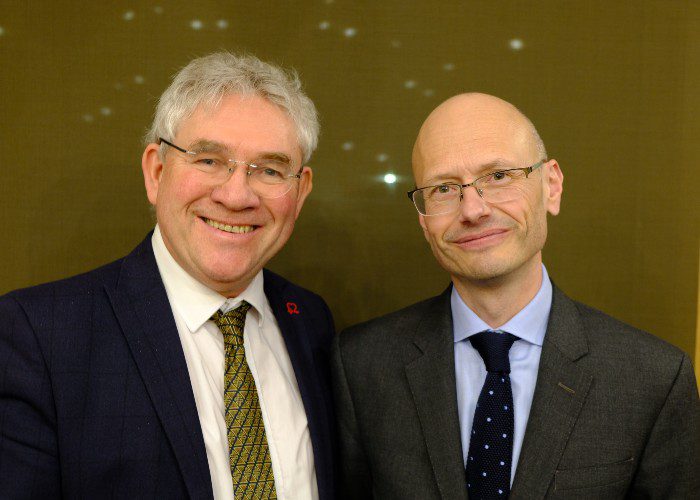The Chief Medical Officer of Moderna, the company that has led the way in the development of mRNA vaccines against COVID says the technology has the potential to impact both disease prevention and the treatment of some cancers in the future.
SPEAKING at a meeting in the Scottish Parliament, Dr Paul Burton suggested Scotland’s size, NHS and close working relationships with its universities, give it significant advantages potentially to play a central role in clinical research around new technologies and therapies such as mRNA vaccination.
Messenger RNA (mRNA) carries instructions from a cell’s DNA in the nucleus to the sites where proteins are being made, enabling the body to effectively produce its own proteins. Thus mRNA medicines fight diseases in a different way than traditional medicine by prompting people’s own immune system to create the tools to treat or prevent disease.
Dr Burton presented to the Cross Party Group (CPG) on Life Science at the Scottish Parliament on the company’s development of the technology . He said:
“I was delighted to present to the CPG for Life Sciences in the Scottish Parliament and discuss the potential opportunities from Moderna’s significant investment and partnership with the UK government. As part of that, we explored working with Scotland on clinical trials, NHS data and future skills and education across the medical spectrum. It is through this type of dynamic partnership we can make a long-term impact on health inequalities and improve public health.”
Dr Burton told the CPG, which brings together MSPs with people working across Scotland’s life science sector, that he believes that it would be positive for Scotland if a company looking to set up research were able to sign a single national research or clinical trials agreement once for the whole country, allowing access to each of its academic medical sites.
He suggested that trials of the future will be decentralised and digitised to save people travelling into research centres. He added that his company is already involved in research that used smart phone apps and mailed out test kits to people to help them see if they were eligible to be part of a clinical trial.
Dr Burton added: “I think Scotland, because of the comprehensive health system here and its amazing academic medical centres and research, is perfectly placed to be a world leader.”
The Convener of the CPG, Kenneth Gibson MSP said:
“Dr Burton gave us a fascinating insight into a hugely important area of clinical research – and challenged us to make sure Scotland can play a part in this work and ensure patients can benefit from new innovation.
“We are very pleased that both ministers for life sciences and for health routinely join our meetings. Working together, as a group, I am confident that we can help the health and life sciences community in Scotland to rise to the challenge that Dr Burton gave us.”
